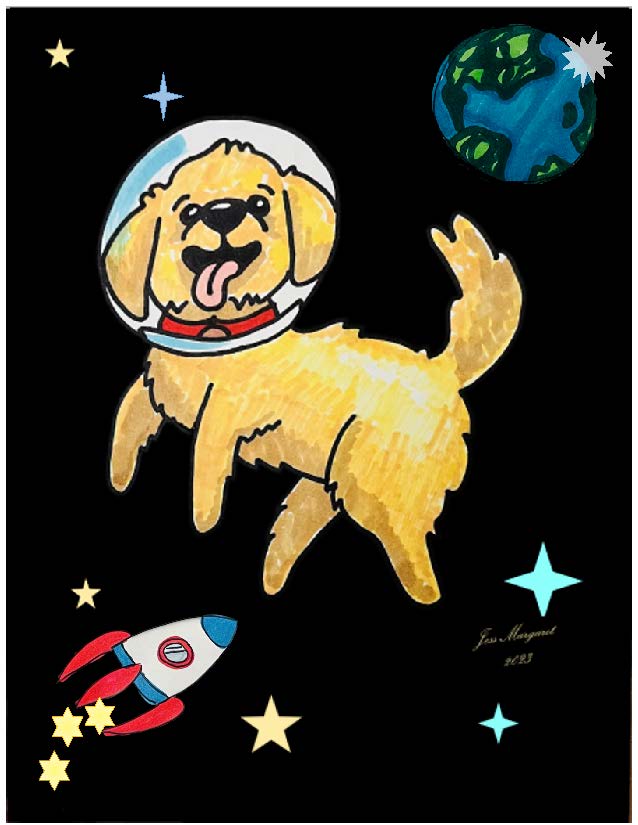ORBIT - VSV and ONIx for Canine Lymphoma

Caitlin Feiock, DVM
Assistant Professor, Department of Veterinary Clinical Sciences
[email protected]
Kelly Reid, CVT
Senior Research Study Technician
[email protected]
612-625-7645
Study title
Translation of a novel combination therapy approach for non-Hodgkin lymphoma
Purpose of study
NEW experimental treatment for dogs with aggressive lymphomas (LSA; B or T cell) with genetically modified Vesicular Stomatitis Virus (VSV), enhanced by adding a new molecule that increases the anti-tumor immunity, called onco-immune accelerator (ONIx).
- Phase 1 will determine if VSV and ONIx each have efficacy as individual treatments
- Phase 2 will determine the safety and efficacy of a combination therapy using VSV and ONIx (B-cell only)
Eligibility criteria
Dogs must:
- have a previously confirmed diagnosis of aggressive lymphoma (B or T cell are eligible; any stage, substage a only)
- have no previous treatment (naive disease) or have received at least one dose of chemotherapy then discontinued due to resistance (refractory disease) or disease progression (relapse)
- be overall feeling well with no significant health concerns aside from lymphoma based on physical examination and laboratory
- weigh greater than 16.5 lbs (7.5 kg)
- be spayed or neutered
- be up to date on vaccines, flea/tick prevention and internal parasite control
- not be taking alternative/herbal medications or corticosteroids (some are ok as part of CHOP treatment)
- not be housed near or otherwise have access to livestock (VSV is a potential concern in livestock)
- discontinue any immunosuppressive drugs for two weeks prior to enrolling in the study
Procedures
The visits for the study include (summary). Some patients will be given VSV, some ONIx, and some both; detailed treatment plan will be discussed prior to enrollment:
- Screening exam will include blood, urine and fecal samples collected, imaging of the chest and abdomen under general anesthesia, and a lymph node biopsy.
- Week 1: Monday – Friday dogs will stay in the Veterinary Medical Center to receive treatment with VSV (given IV) and/or ONIx (given under the skin) and observation. Dogs getting VSV will receive it on Monday. Dogs getting ONIx will receive it on Wednesday and Friday. Samples of blood, urine, saliva, feces will be collected.
- Recheck visits on Day 7, 10, 14, 28, 49, 70, 98, 182 (6 months), 365 (year) will include exam with blood, urine and saliva collected. ONIx treatments and restaging (see below) may also be preformed.
- ONIx treatments will be given during recheck appointments on Days 7, 28, 49, and 70. Dogs will stay a minimum of two hours post-treatment for observation, owners can drop them for their convenience.
- Restaging will happen during recheck appointments on Days 49, 98, and 182. They will include imaging of the chest and abdomen under general anesthesia if needed. Possible tissue biopsy if lymph nodes are enlarged.
Costs
Owners are responsible for the initial diagnostic exam, bloodwork and urinalysis during the screening visit.
Once a patient is enrolled, all costs associated with visits and treatments pertaining to the study will be covered.
Phase 1 participants will receive a $5000 stipend for chemotherapy treatment if disease progression occurs. Treatment must be performed at the University of Minnesota to be covered by the stipend.